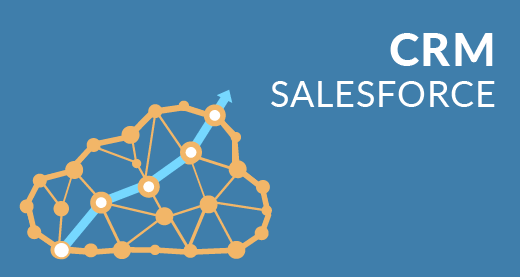Government support programsThese are initiatives or services provided by the government... More offer essential help for families struggling to pay their bills. Whether it’s paying your rent, covering utility bills, or even medical and grocery costs, these programs provide the relief you need. If you’re finding it difficult to make ends meet, you might qualify for different assistance through various government support programsThese are initiatives or services provided by the government... More available at local, state, and federal levels. These programs can help ease the financial burden and provide short-term relief during difficult times.
For families and individuals facing hard times, these government support programsThese are initiatives or services provided by the government... More may be a lifesaver. If you’re looking for assistance in covering your everyday expenses, it’s important to explore what resources are available. Here’s a detailed breakdown of the different government support programsThese are initiatives or services provided by the government... More that can provide financial assistance and relief.
Financial Assistance Programs to Get the Help You Need
One of the most helpful government support programsThese are initiatives or services provided by the government... More available is financial assistance programs. These are designed to help families meet their basic needs like paying bills and getting access to food or healthcare. If you’re struggling financially, you might qualify for a financial assistance program that could help with rent, utilities, and other essential bills. Most programs require proof of income and household size to determine eligibility.
A popular financial assistance program is Temporary Assistance for Needy Families (TANF). This federal program provides cash assistance to eligible low-income families with children. TANF is designed to help cover essential expenses while you look for a job or regain financial stabilityBeing able to manage your money so you can pay bills, save f... More. These programs often come with time limits, so it’s a short-term help designed to bridge the gap.
Another valuable option is the Low-Income Energy Assistance Program (LIHEAP). This program helps cover the cost of heating and cooling your home. It’s especially useful for people who live in areas with extreme weather conditions, making utility bills harder to manage. LIHEAP provides both regular energy bill payments and emergency assistance for individuals facing shutoffs.
In addition to the ones above, there are a variety of financial assistance programs that may target your specific needs, including programs for veterans, single parents, or individuals with disabilities. Be sure to research your eligibility for various programs that might help support your household during tough times.
Utility Bill Assistance Programs to Manage Your Monthly Bills
If your biggest concern is keeping the lights on, there are many utility bill assistanceA program or service offered by the government or non-profit... More programs available to help. Most utility companies partner with government programs to offer relief to low-income households. These programs help reduce or eliminate your utility bills, making it more manageable to keep essential services active.
For example, the Energy Crisis Intervention Program (ECIP) is an emergency program available in many states that provides one-time assistance to families with utility arrears. ECIP is designed to prevent shutoffs and can pay your outstanding utility bills or provide heating assistance. This can be a valuable tool during the cold winter months, which are especially difficult for families who are already struggling financially.
Additionally, utility companies may offer low-income assistance programs directly. If you’re having trouble paying your monthly bills, reach out to your utility company and ask about assistance programs for low-income customers. Many utility companies offer grants, discounts, or payment plans that can make your bills more manageable.
Another resource to consider is LIHEAP, which also offers help with weatherization. Weatherization helps to make your home more energy-efficient, ultimately lowering energy costs in the long run. By sealing windows, adding insulation, or repairing a furnace, you may qualify for help with energy costs in the future.
Housing Assistance: Government Support for Rent and Mortgages
Rent and housing are some of the most expensive bills many people face, especially if you live in a big city. Fortunately, there are a number of government support programsThese are initiatives or services provided by the government... More designed to help with rent payments and finding affordable housing.
Section 8 Housing Choice Vouchers is one of the most well-known government programs that provides low-income individuals and families with subsidies for rent. If you qualify, the government will pay a portion of your rent directly to your landlord, reducing your financial strain. Families with children or elderly members often qualify for these programs, as well as individuals living with disabilities.
The Emergency Rental Assistance Program (ERA) was introduced to help people during the financial hardships of the COVID-19 pandemic but continues to offer aid to individuals struggling to pay rent. This assistance program is not only available for rent payments but can also cover utilities, helping to prevent evictions and keeping individuals and families housed during difficult financial times.
To apply for housing assistance, check your local housing authority or website to find out if you qualify. Most programs require you to meet specific income requirements and prove that you are facing a financial crisis. These programs are designed to help people avoid homelessness and remain in stable housing as they work through their difficulties.
Another resource worth exploring is rent payment assistance programs offered by local nonprofits and government organizations. These programs might vary by location, but they typically offer one-time or monthly rent subsidies to families struggling to stay in their homes. Searching local government websites can help you find additional housing assistance options that might be available in your area.
Bill Relief Programs to Alleviate Your Financial Stress
Many people feel overwhelmed by the bills that pile up each month, but there are plenty of bill relief programs available to help. In addition to rent and utilities, you may qualify for bill relief programs that provide financial assistance for overdue debts, including credit card payments and personal loans.
Various programs, especially during times of national or state emergencies, offer temporary relief from monthly bills. The Emergency Rental Assistance Program (ERA), for example, not only helps cover housing costs but also utility bills, preventing loss of essential services like water, electricity, and gas.
Additionally, food assistance programs like Supplemental Nutrition Assistance Program (SNAP), formerly known as food stamps, can give you the necessary help to buy groceries. For many individuals who are struggling to make ends meet, free government help in the form of SNAP benefits can reduce the stress of providing healthy food for you and your family.
If you are in need of immediate help with overdue utility bills, emergency programs like ECIP can assist you in making sure your power stays on. If you face medical bills you can’t pay, government health programs like Medicaid offer free healthcare for low-income individuals and families.
You can also apply for debt relief programs through government agencies or nonprofit organizations that may offer counseling or assistance in negotiating with creditorsCreditors are individuals, companies, or institutions that a... More. For example, debt management programs can help you consolidate and reduce interest rates for debts like credit cards or personal loans, making it easier to manage payments and avoid falling behind.
Free Government Help for Medical, Food, and More
In addition to covering housing and utility costs, many free government help programs offer assistance for medical care, food, and other essential needs. If you’re struggling to pay medical bills, Medicaid can help cover doctor visits, prescription medications, hospital stays, and more. Medicaid is available to low-income individuals and families and provides free or very low-cost healthcare.
If you need help with groceries, the Supplemental Nutrition Assistance Program (SNAP) provides benefits to buy food at stores. In certain cases, food distribution programs through local agencies may also help if you have no access to a store or transportation.
The Women, Infants, and Children (WIC) program provides healthy food, education, and referrals to women, infants, and children up to age five who have low income. If you have young children or are pregnant, WIC is another excellent resource to meet your needs while you work to improve your financial situation.
In some communities, emergency food banks and shelters offer immediate relief if you’re facing short-term financial challenges. These services provide meals, groceries, and sometimes even toiletries to families in need. It’s a good idea to look into your local area and see what community resources might be available to you.
Additionally, many states and local areas have free clinics for low-income individuals. These clinics provide medical care for those who cannot afford to pay or lack insurance coverage.
Applying for Government Assistance: Getting Started
If you’re wondering where to start with applying for assistance, check out Benefits.gov, a resource that provides information about federal and state government programs. You can search for a wide range of help based on your income, family size, and specific needs.
To apply for government support programsThese are initiatives or services provided by the government... More, you’ll need to provide personal details, income documents, and other forms of proof. Many financial assistance programs require you to show that you’re unable to meet the minimum necessary expenses, whether that be paying rent, food costs, or covering your medical needs. Take your time and fill out each application carefully to ensure you qualify for as much assistance as possible.
For utility assistance, reach out directly to your local utility provider to ask about programs available to help low-income households. Many providers offer payment assistance, extended due dates, or even bill forgiveness.
Finding Stability with Government Support Programs
While government support programsThese are initiatives or services provided by the government... More are often temporary, they are designed to help individuals and families during times of financial hardship. These programs aim to help you meet essential living expenses while you work to improve your financial situation. Don’t hesitate to access any available aid — these programs exist to help reduce your stress and prevent long-term damage to your finances.
As your situation improves, keep track of your eligibility and program expiration dates. Programs may end or change requirements after a few months, so it’s important to stay on top of any updates or new opportunities.
By taking advantage of these resources, you can alleviate the immediate burden of bills while working on long-term financial stabilityBeing able to manage your money so you can pay bills, save f... More.

For more information about assistance programs available to you, check out Benefits.gov.

